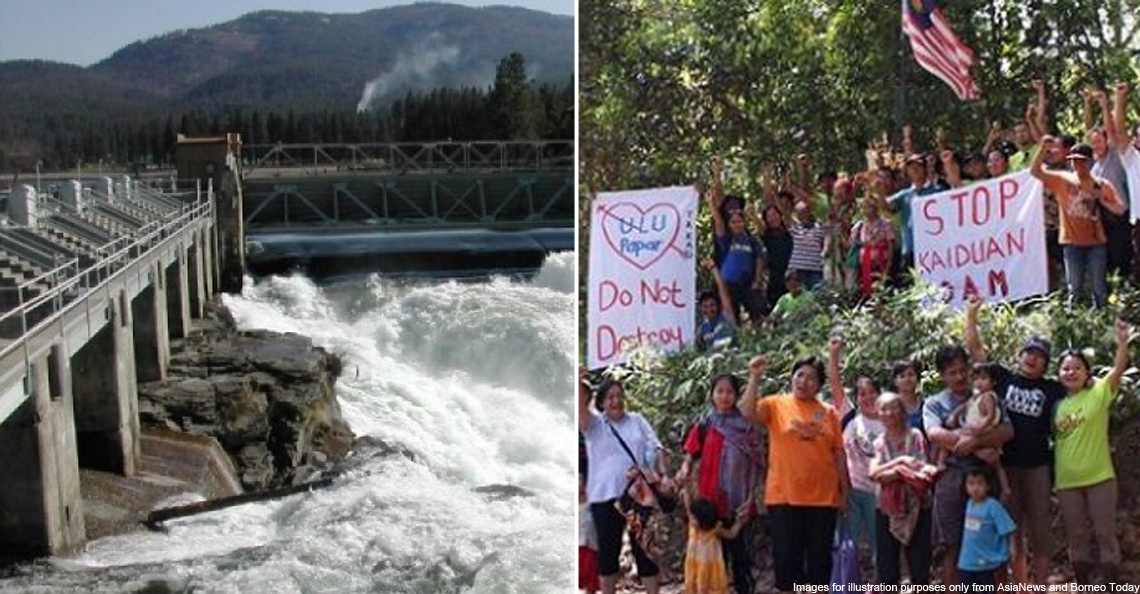A Perak town has poison in its water. So why is the Health Ministry saying that’s okay?
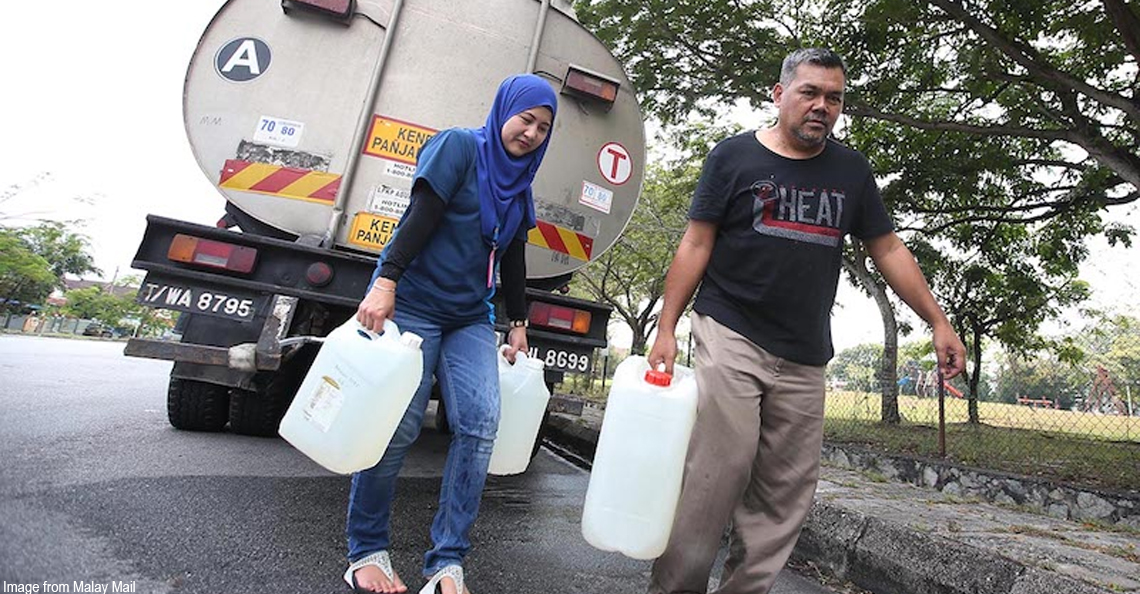
- 400Shares
- Facebook362
- Twitter5
- LinkedIn7
- Email8
- WhatsApp18
Ahhh, water.
Gulping down a whole bottle on a hot Malaysian day is probably one of our favourite pastimes. But what if there’s no water at all, or worse – what if the water might potentially harm us?

Probably the only thing worse than not having water is having water but not being able to drink it cos it’ll harm you. Which is sadly kinda what happened for a number of Perak folk, as it was recently discovered that the river supplying water to people in Gerik had been polluted with the toxic chemical arsenic.
However….
The Health Ministry deems that the water is still safe to use… for washing only
Alright so here’s a quick rundown of the events that led to this. First off, in early April, it was reported that Sungai Rui, a source of raw water that goes to the Ayer Ganda water treatment plant, was found to have significantly high levels of arsenic in it. Now why is that important? Well for a start, arsenic is pretty bad for us.
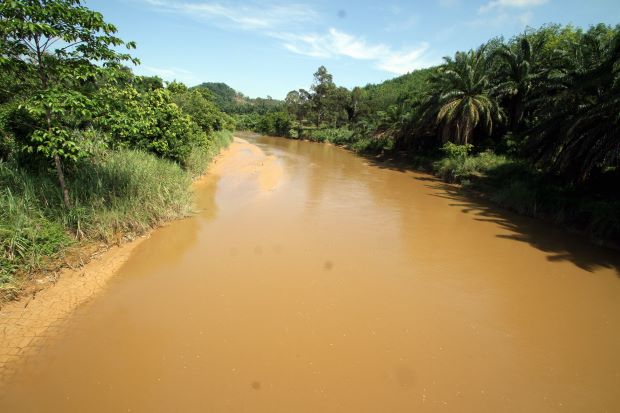
According to the World Health Organisation (WHO), arsenic – sometimes naturally present in groundwater around the world – can he highly toxic. Drinking or using arsenic-laden water to water crops remains one of the biggest public health problems out there. Those exposed to arsenic from water may end up with everything from skin lesions and diabetes to cancer and heart problems. Being exposed to arsenic from young also affects cognitive development.
With such a threat posed by arsenic in water, the Ayer Ganda water treatment plant was quickly shut down on April 9, with the National Water Services Commission (SPAN) saying that the shutdown was due to the arsenic levels in the river having exceeded the allowed limits set by the Health Ministry.
“SPAN as a water service industry regulator responsible for ensuring water supply that is safe and fit for drinking has no immediate plans to resume the operations of the Ayer Ganda WTP,” – SPAN, as quoted by NST
As for the over 1,500 nearby villagers affected by the water plant shutdown, a number of them have revealed that they knew Sungai Rui was badly contaminated for years. Many put the blame on mining activities near the river for the pollution. Some villagers are even already showing signs of skin diseases that might be due to the arsenic in the water.
“One day, I noticed my skin had started to peel, and soon the affected areas became white. I was not sure how I got it, but I believe it was from the river. I am currently seeking medication from a skin specialist at Raja Permaisuri Bainun Hospital, Ipoh,” – Osman Ahmad, villager, as quoted by NST
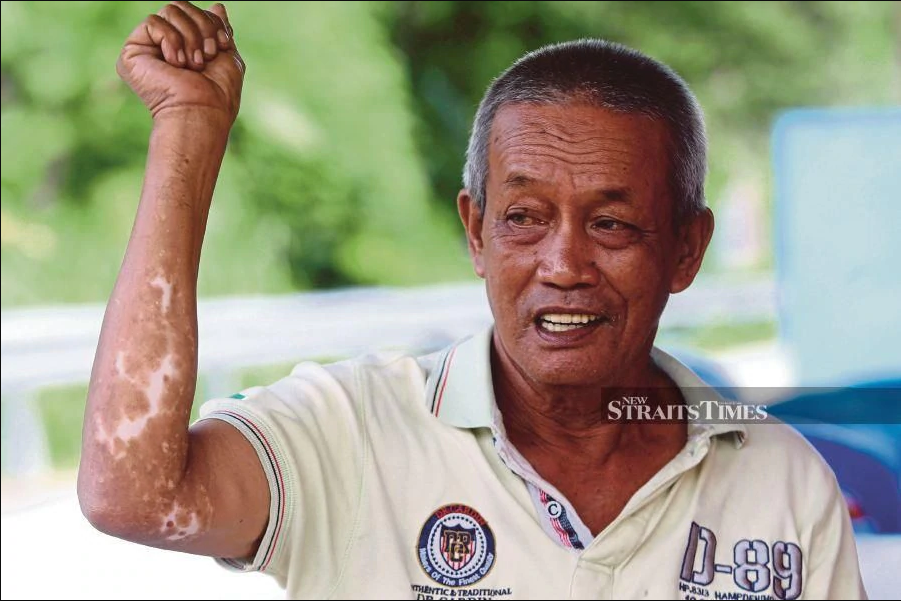
At time of writing, these villagers are still having to live on water tankers supplying them daily. With Ramadan coming up soon as well, the Perak Menteri Besar Datuk Seri Ahmad Faizal has asked the Water, Land and Natural Resources Ministry for the Ayer Ganda water treatment plant to be reopened. This comes after Deputy Health Minister Dr Lee Boon Chye said that despite the suspected arsenic poisoning, the water is still safe enough for washing clothes and bathing, but not for consumption.
“I wrote a long letter to the minister but his reply was that the treatment plant could not be reopened unless it receives the green light from the Health Ministry that water there is safe to be used. However, deputy Health Minister Dr Lee Boon Chye has said the water is safe to be used for shower and washing,” – Perak MB Datuk Seri Ahmad Faizal, as quoted by Malay Mail
Now some of you might be like ‘wtfbbqptptn’ upon reading the part about the Deputy Health Minister saying that arsenic-laden water is still safe. Indeed, after he made that statement, there was some negative reaction to it on social media too.
But what if we told you that….
The Health Ministry might be right that the arsenic-laden water is safe
From what we’ve seen, having just a lil bit of arsenic – more than 0.010 milligrams per liter – is considered not safe for people to drink or consume. But at the same time, assuming the arsenic concentrations doesn’t exceed 0.099 milligrams per liter, it is seemingly safe enough for bathing and washing. And so that leads to the question: what was the arsenic level in the Ayer Ganda water treatment plant?
According to SPAN, they found the arsenic level to be around 0.024 milligrams per liter, and subsequently shut the water treatment plant down. But because it didn’t go over 0.099 mg/l, you could perhaps understand the reasoning behind Dr Lee’s calls for the plant to be reopened.
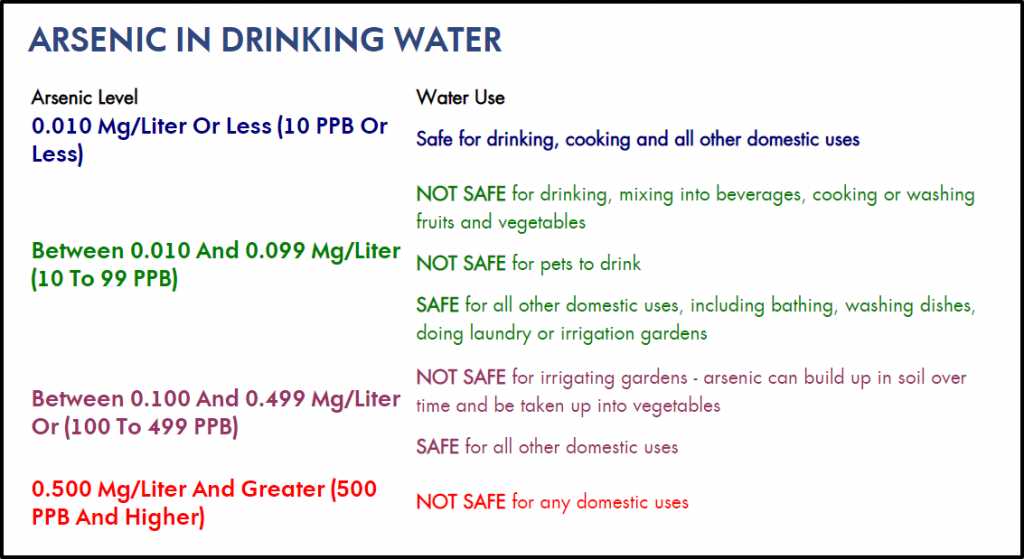
Just in case you thought that boiling arsenic-laden water can purify it, well, you thought wrong. In fact, by boiling the water, you’re increasing the concentration of arsenic in it as some of the water evaporates away during the boiling process. Furthermore, using chlorine to disinfect the water like your local swimming pool will also fail at removing the arsenic contaminants.
Some options that can treat water with arsenic in it include distillation, reverse osmosis, ultra-filtration or ion exchange. Granted, while you can buy reverse osmosis filters for your home, we have our doubts as to whether the villagers affected have such filters fitted in their houses. As such, they remain stuck with the water tanks that come by their villages daily for water.
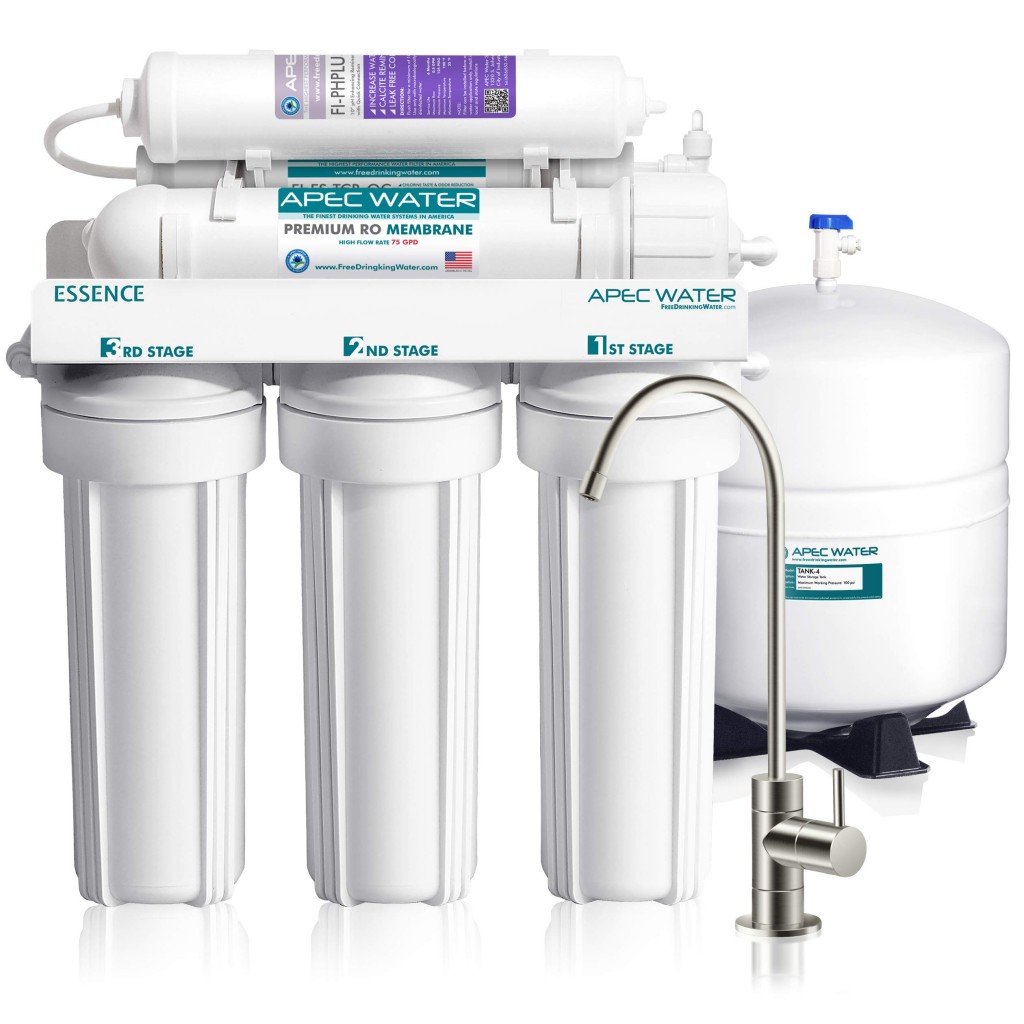
Thankfully, the folks in Perak can soon bathe in clean water again. While the Perak govt remain waiting for SPAN to approve reopening the Ayer Ganda water treatment plant, Perak MB Ahmad Faizal has ensured the villagers that they will rectify the arsenic issue before Hari Raya begins this year; SPAN is already working on installing additional piping from the Lawin water treatment plant 11.5km away to get some water over to the people affected.
Will our water woes ever go away?
Any small town kid who moves to Klang Valley for the city life will probably find it hard to believe that despite the supposed charm of a fast paced modern metropolis, water cuts are somehow super frequent here.
In fact, Malaysia has had quite a number of water cuts and crises over the years, to the point where we even managed to compile some of the worst into an article before. And altho the recent mega water cut in Klang Valley as well as the Perak arsenic controversy might leave a bad taste in your mouth, it might get better soon, with one Charles Santiago now at the helm of SPAN.
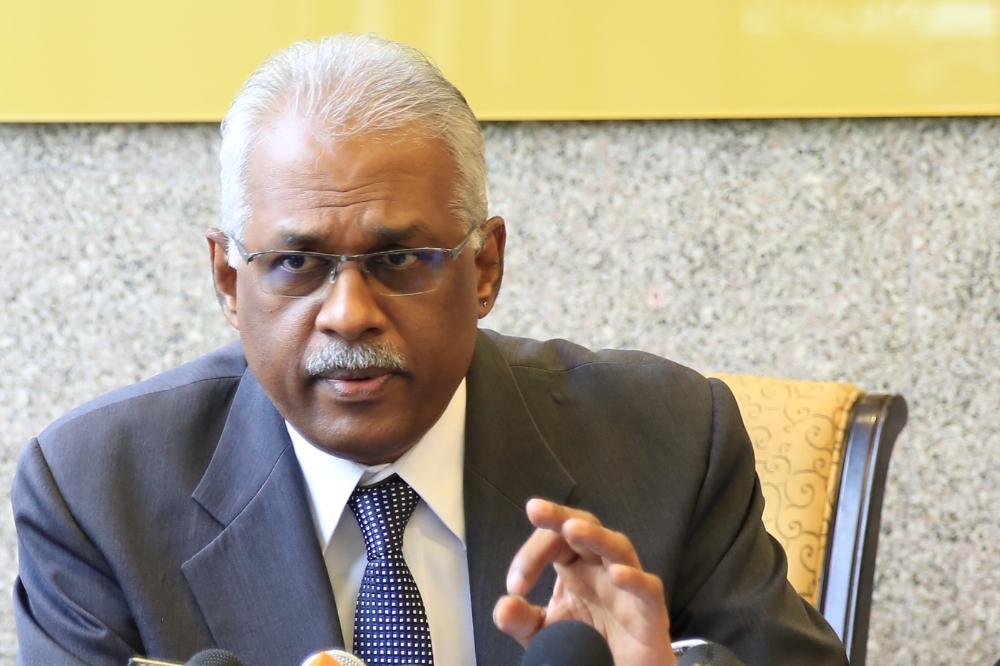
“I have been a water activist for many years, both in Malaysia as well as outside. I strongly believe that water is a human right and it should be made affordable to everybody,” – Charles Santiago, SPAN chairman, as quoted by The Star
Known for being very outspoken on water issues since he first became an MP, Charles Santiago, – elected as SPAN chairman last November – seems determined to ensure that everyone in Malaysia has access to water, and we can probably expect him to try to solve most of the water woes that plague Malaysians everywhere.
- 400Shares
- Facebook362
- Twitter5
- LinkedIn7
- Email8
- WhatsApp18

